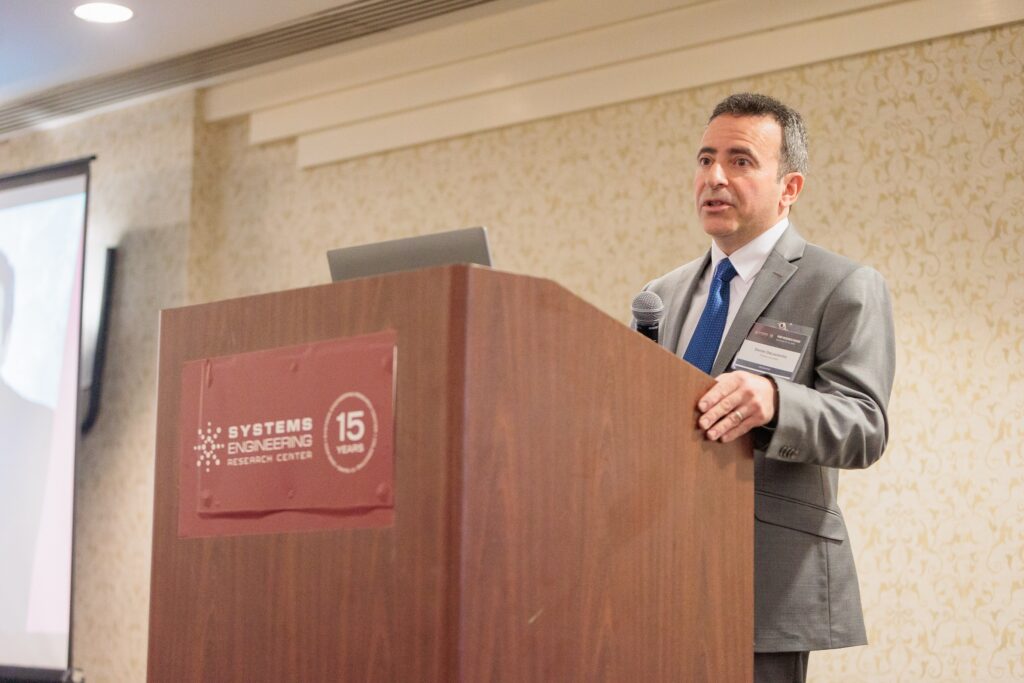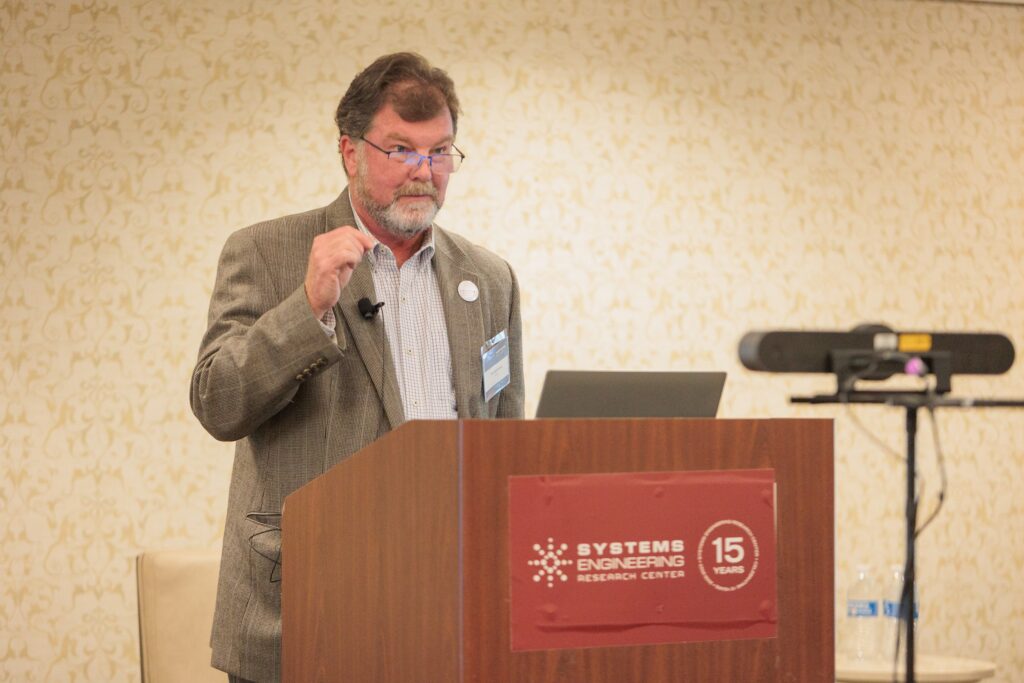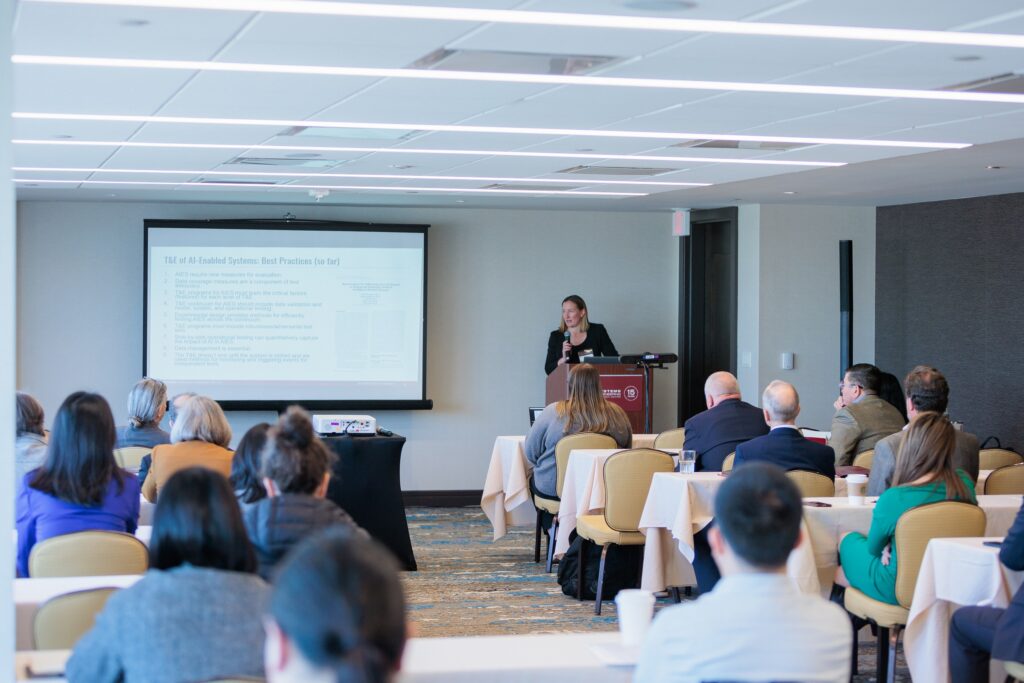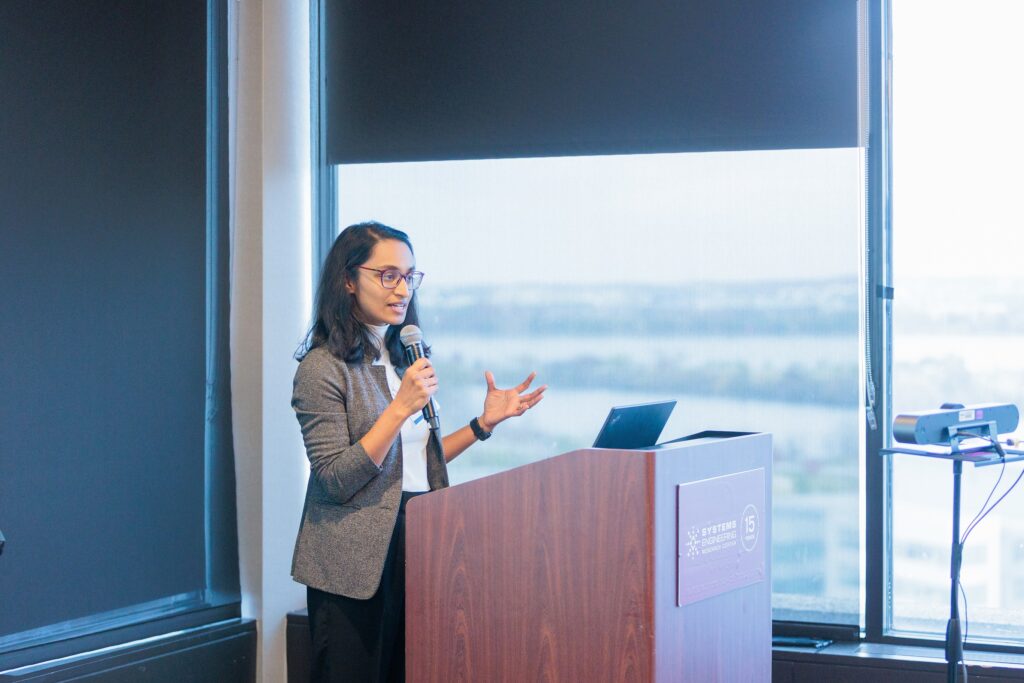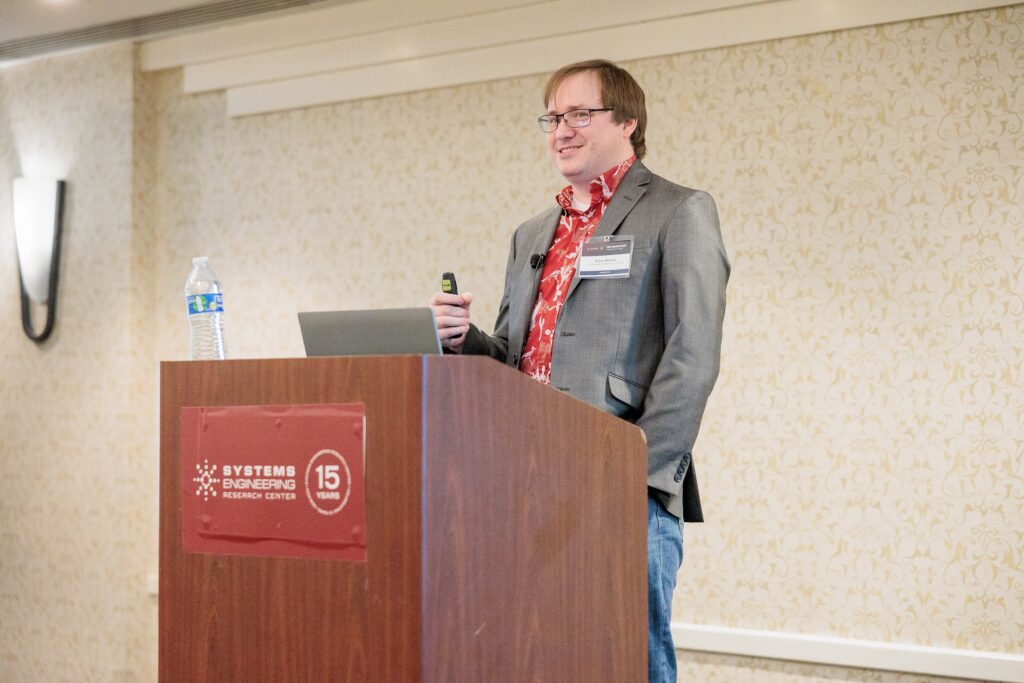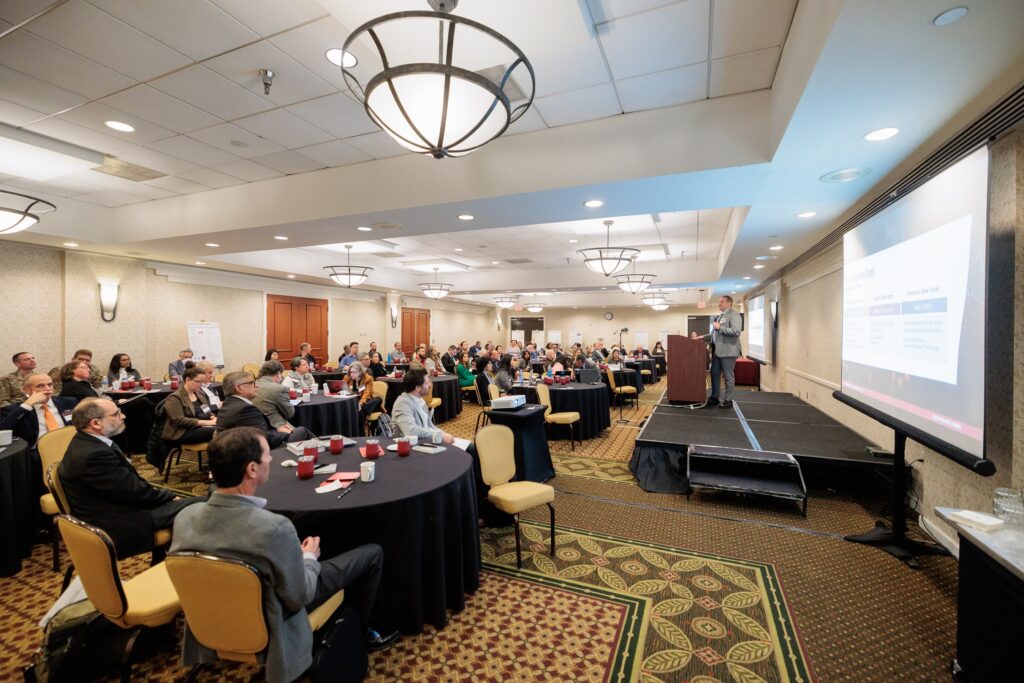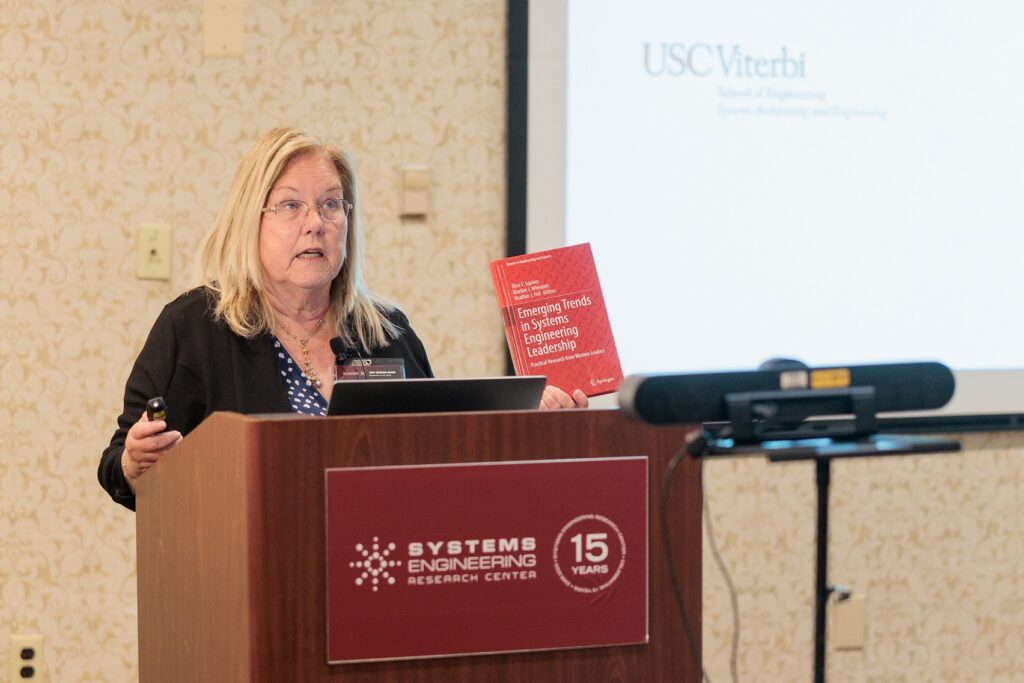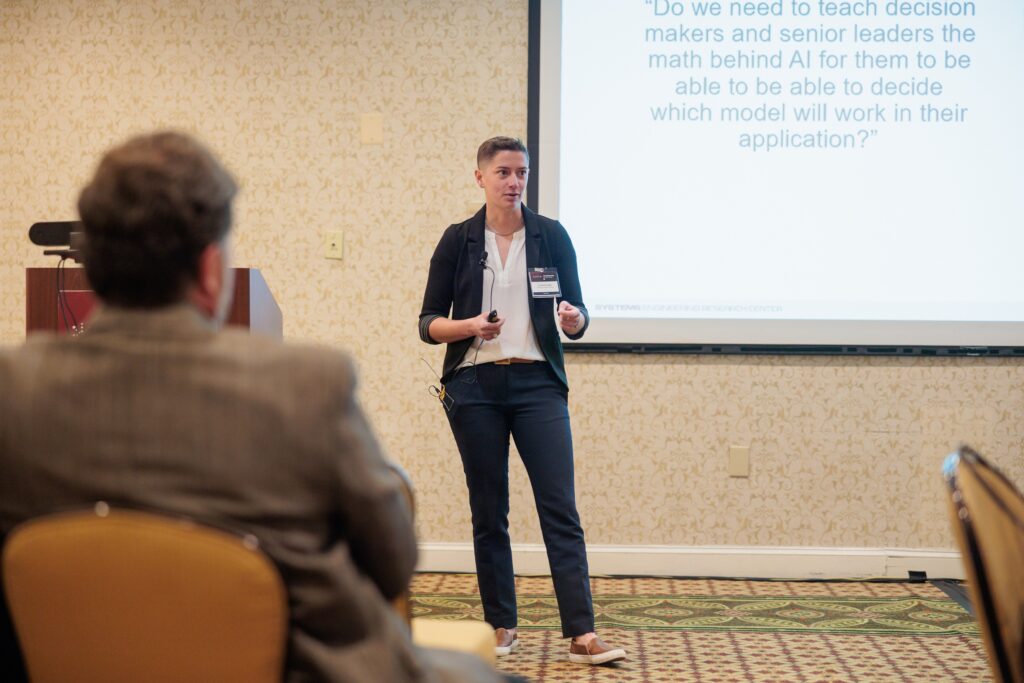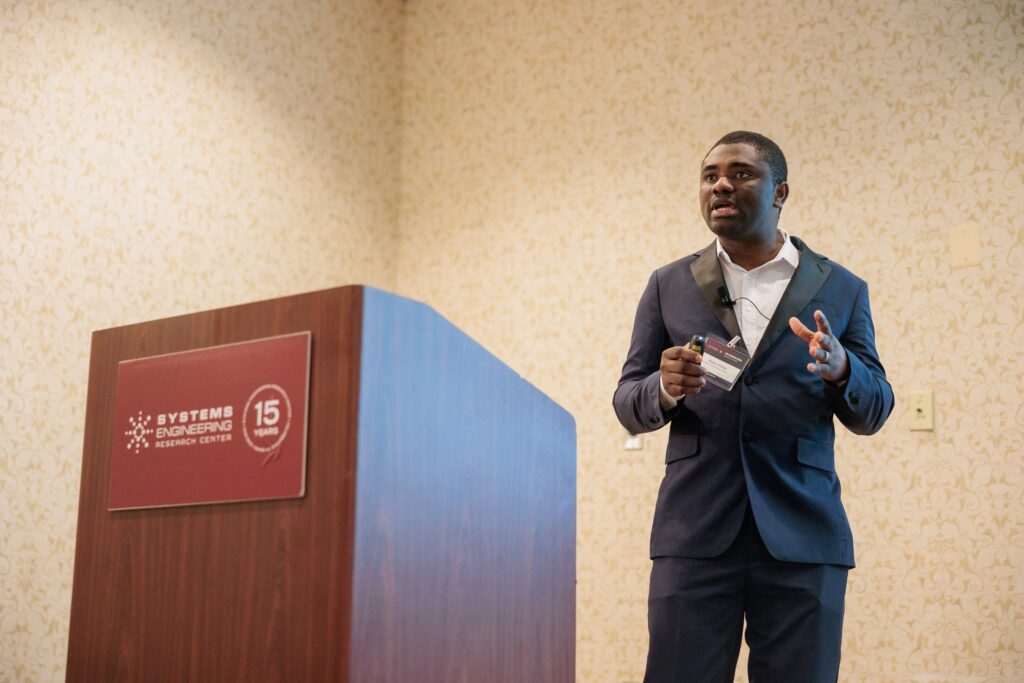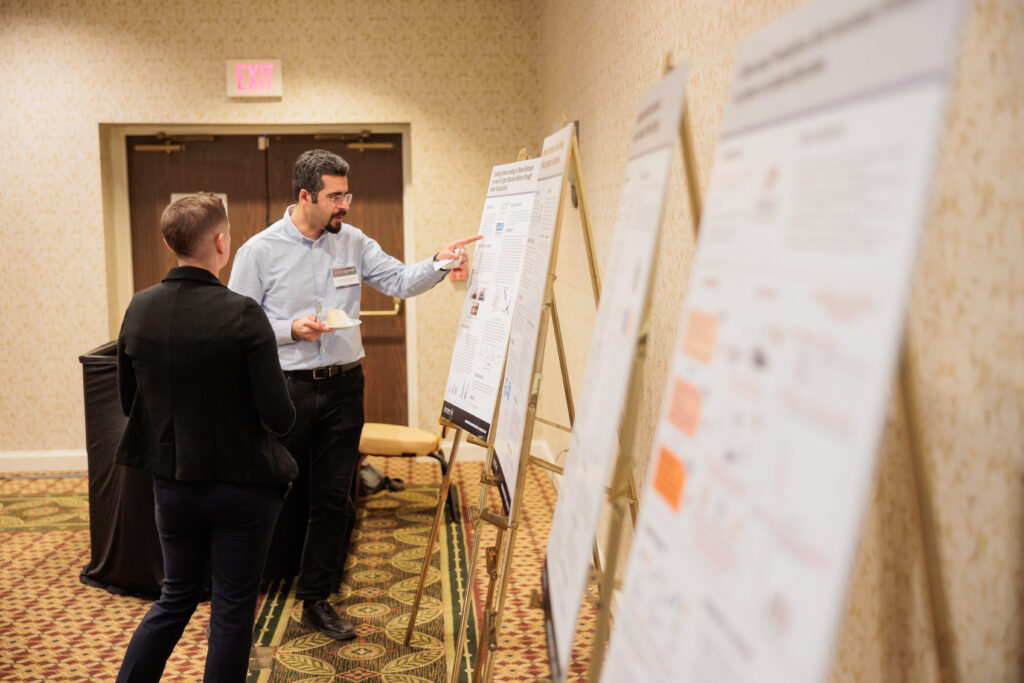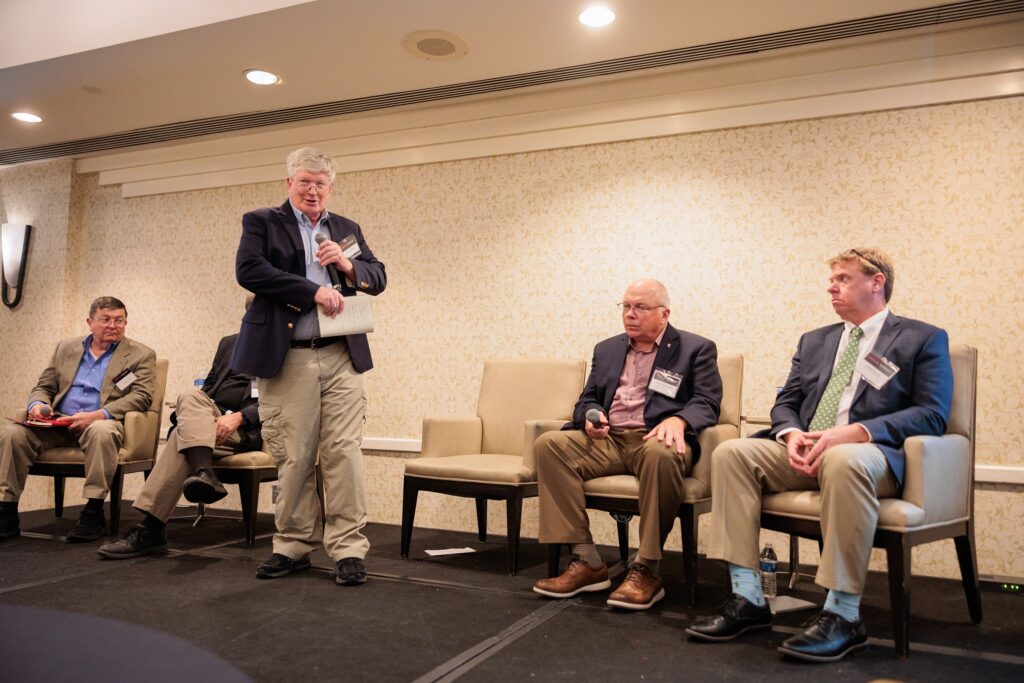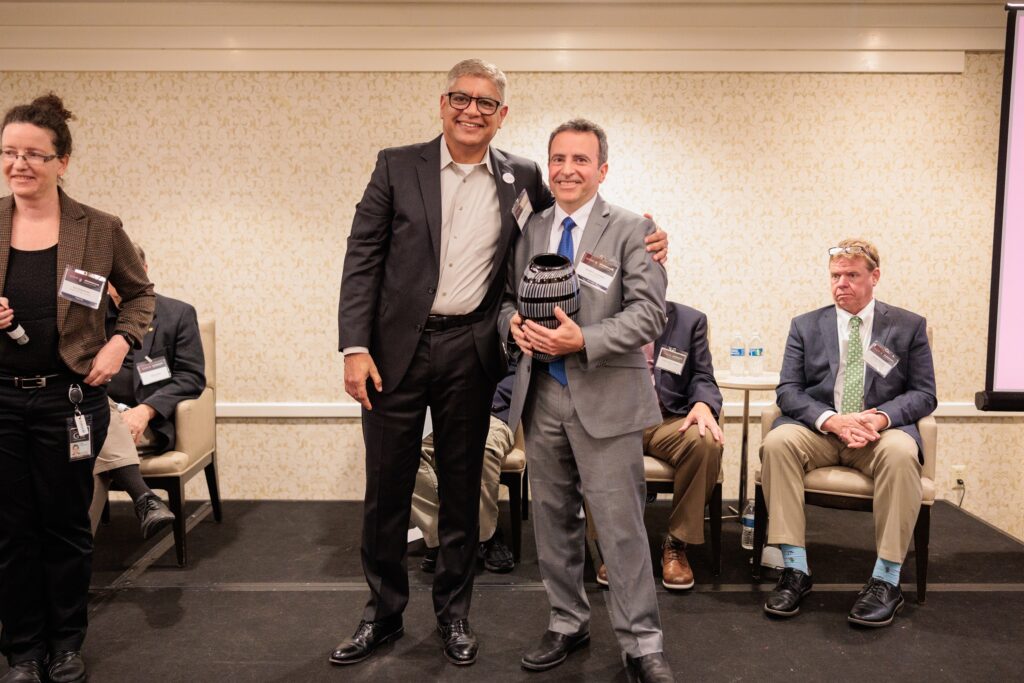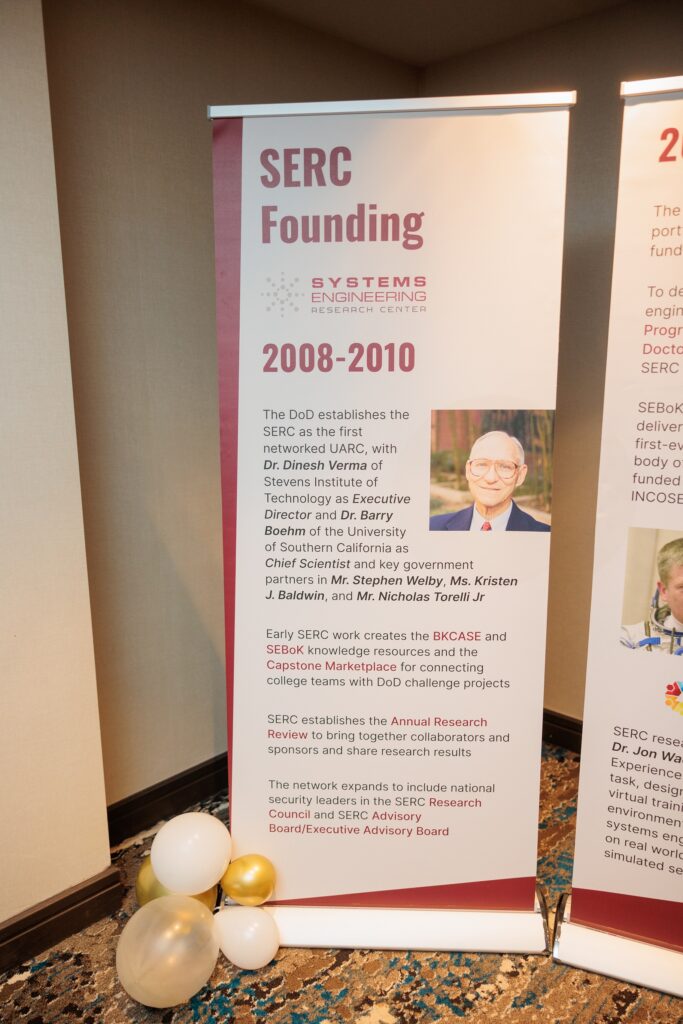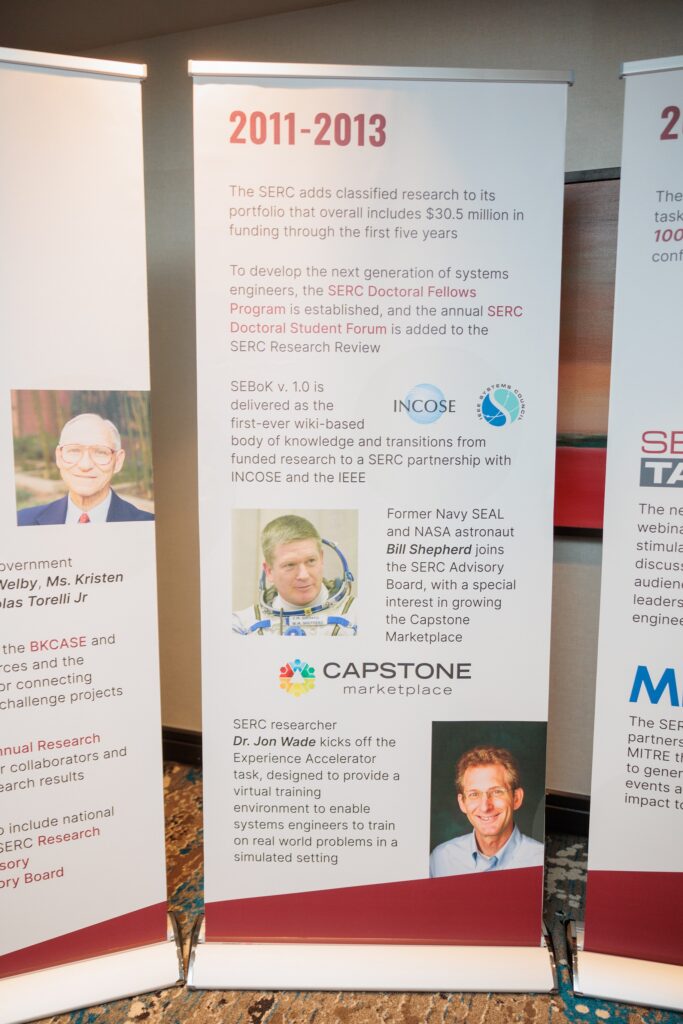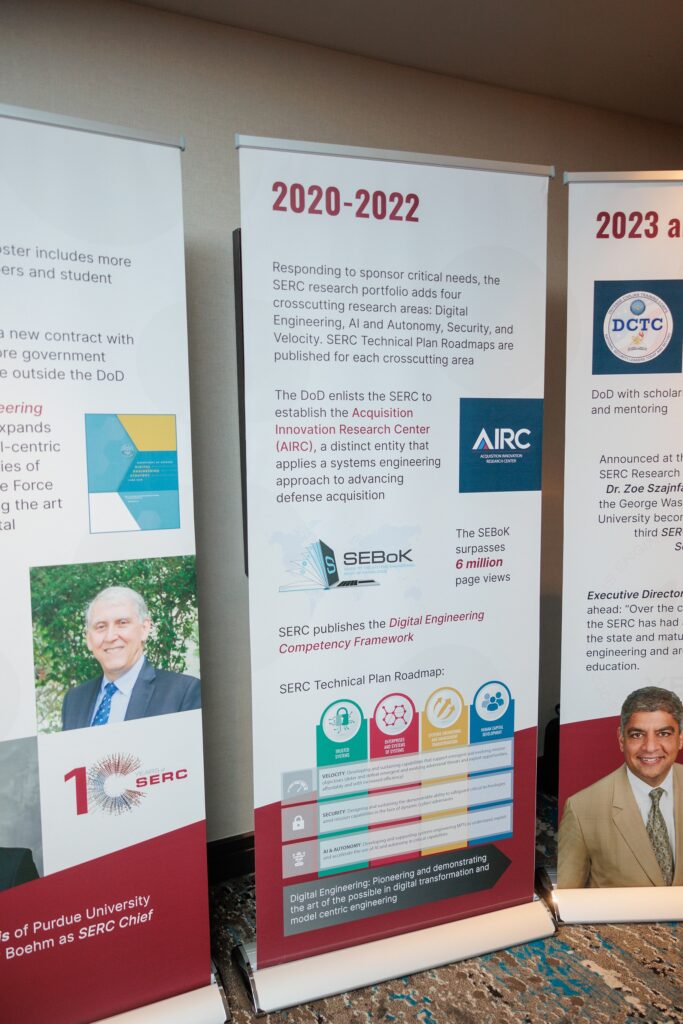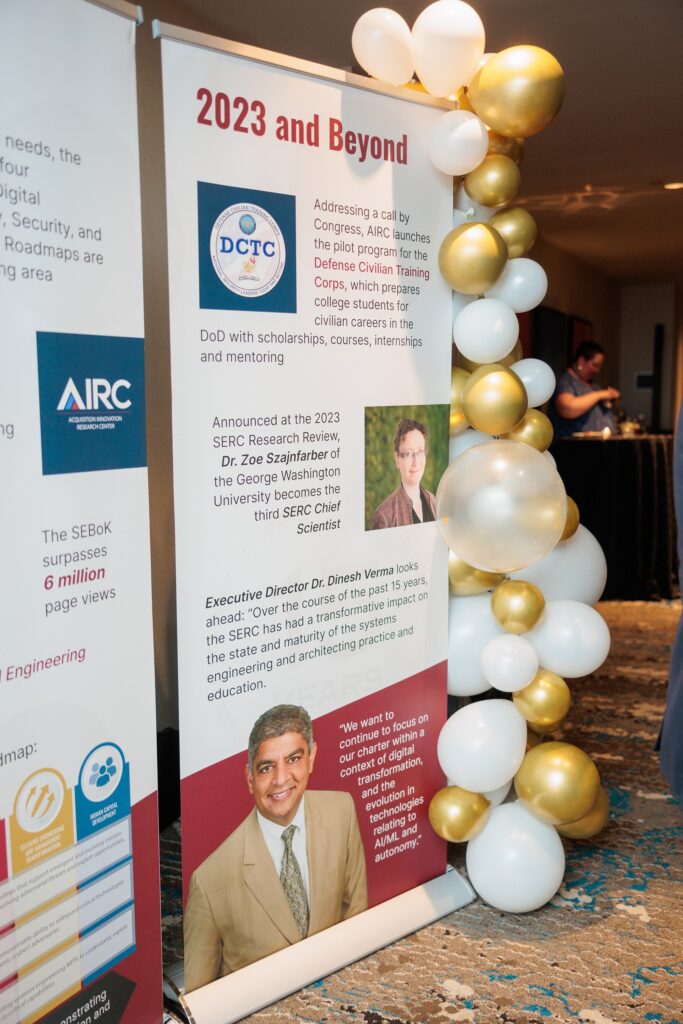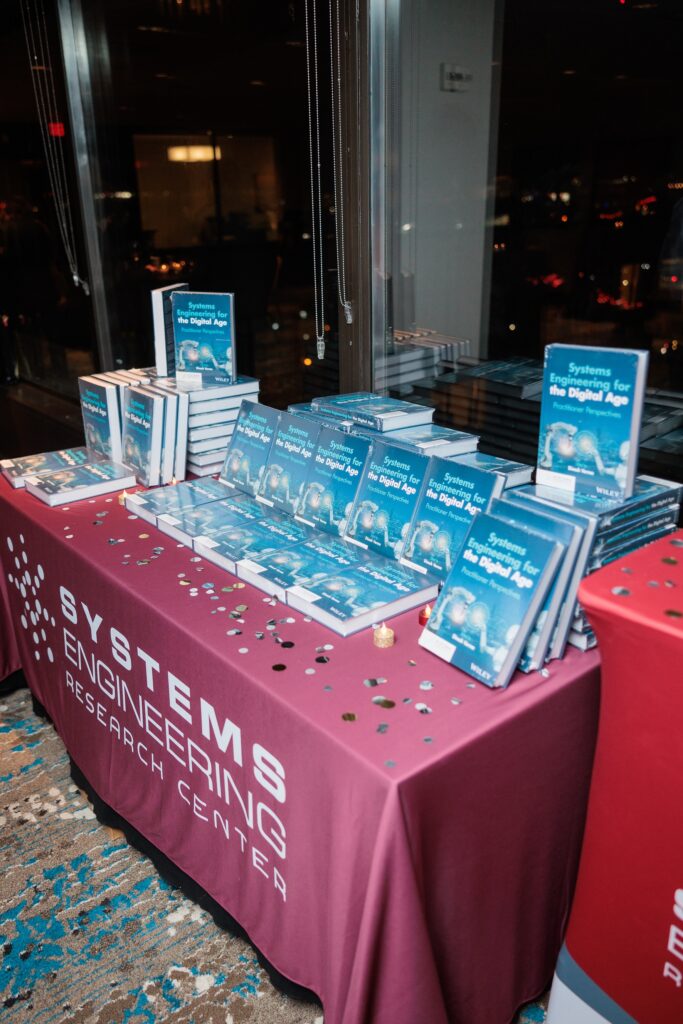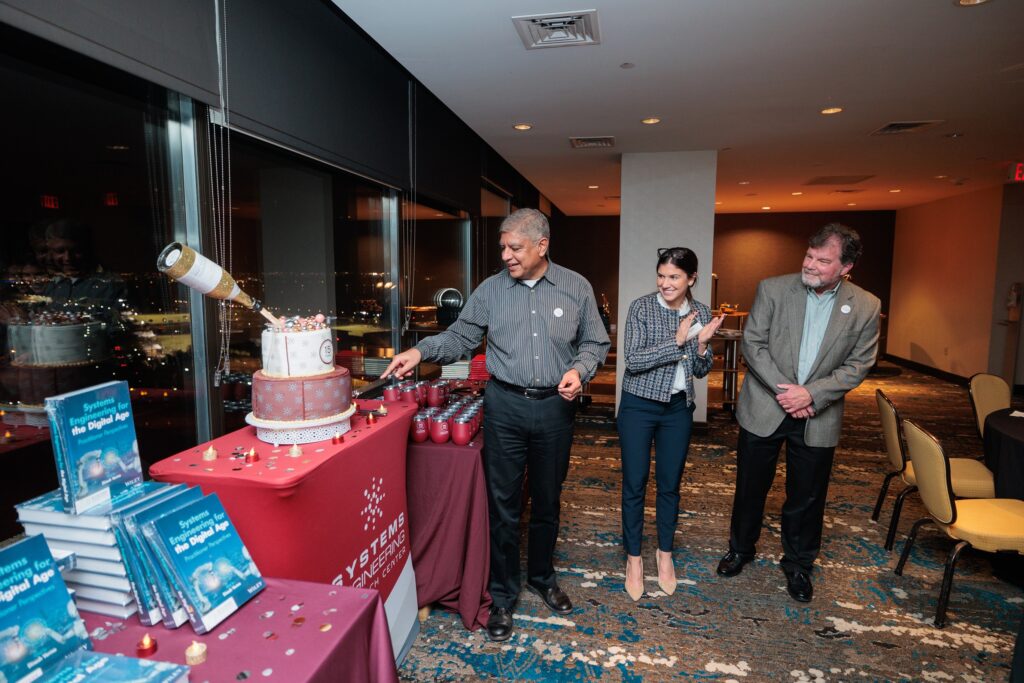The 2023 SERC Research Review (SRR) showcased the latest year of innovation from the Systems Engineering Research Center (SERC) and culminated in a celebration of 15 years of impact since the SERC was founded in 2008 as the first networked University Affiliated Research Center (UARC).
The SERC community of researchers from collaborating universities and government sponsors from the Department of Defense (DoD) gathered in Crystal City, Virginia, on November 14-15 for the annual review and the SERC Doctoral Student Forum (SDSF), which gives selected doctoral students an opportunity to present and compete for the Dr. Barry Boehm Award for Doctoral Student Research Excellence. Ms. Sonali Sinha Roy of Purdue University won for her presentation on risk assessment frameworks.
Serving as emcee, SERC Chief Scientist Dan DeLaurentis of Purdue University humorously likened the SERC at 15 years old to an excited teenager eager for a driver’s license. He also emphasized the SERC’s collaborative structure. “The SERC taught me how to be a researcher in a networked platform context,” he said. “All of the work that the SERC does targets the sponsor’s needs and is really different than a traditional research program.”
SERC Executive Director Dinesh Verma echoed that sentiment in his welcome remarks. He explained how the SERC’s unique structure as a UARC, initially met with skepticism, became its strength. “We were not captive at a large university,” Verma said. “We were a network of universities from the very get-go. I remember being copied on emails that said, ‘This is not going to work.’ The burden was on us and the leaders who took faith in establishing the SERC as a networked center.”
The technical presentations featured SERC researchers from Stevens Institute of Technology, the University of Southern California, Virginia Tech, Georgetown University, the University of Alabama in Huntsville, Old Dominion University, and Purdue. Topics related to systems engineering included transforming systems engineering to model-based systems engineering, digital engineering for test and evaluation, digital engineering simulation, measurable requirements for operational resilience, and workforce development in AI and data analytics. Retired Navy SEAL and NASA Astronaut William Shepherd led a panel on the Capstone Marketplace, a SERC program that connects college student teams with real-world challenge projects from the DoD.
Three senior government officials gave keynote speeches. The Honorable Andrew P. Hunter spoke in his role as Assistant Secretary of the Air Force for Acquisition, Technology and Logistics. Dr. Jagadeesh Pamulapati gave the SDSF keynote as the Director, Science and Technology Foundations in the Office of the Under Secretary of Defense for Research and Engineering. Dr. Steven G. Wax spoke in his capacity as Performing the Duties of the Assistant Secretary of Defense for Science and Technology.
DeLaurentis announced the next SERC chief scientist, Dr. Zoe Szajnfarber of the George Washington University, who will begin serving sometime in 2024. Szajnfarber returned the honor by announcing DeLaurentis would receive the 2023 SERC Founders Award, given annually to researchers who exemplify the network’s collaborative ethos. Many participants of the SERC Research Review also attended an evening reception that featured a special cake, decorations, and a display of Systems Engineering for the Digital Age, a new book involving more than 60 authors that explores SERC research during the center’s prolific first 15 years.
Follow SERC on LinkedIn for regular updates on systems engineering research.

